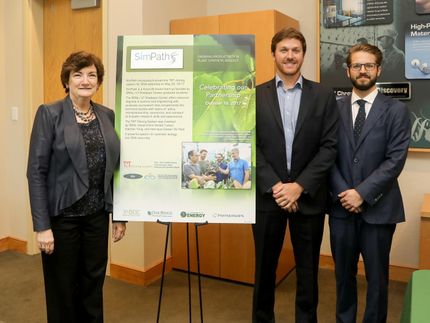Chromos and AviGenics sign licensing deal
ACE System extracts value from transgenics field
Advertisement
Chromos Molecular Systems Inc. ("Chromos") and AviGenics Inc. announced today that they have signed a license agreement under which AviGenics has acquired exclusive rights to Chromos' ACE System to generate transgenic avians for the development of protein therapeutics and other applications in the avian transgenic field.
Under the terms of the agreement, AviGenics will combine the ACE System, Chromos' chromosome-based gene delivery and expression technology, with its transgenic platform to develop new protein therapeutics. Chromos will receive upfront and annual license fees, milestone payments, and collect royalties upon commercialization of ACE System-derived products as well as from revenues generated from services provided to third parties by AviGenics. Further terms of the agreement were not disclosed.
"Having a licensing partner with expertise in avian transgenics underscores the broad potential of our ACE technology," commented Chromos' President and CEO, Alistair Duncan. "With the recent advances made in our technology, Chromos is now able to extract value from transgenic platforms. This agreement represents our commitment to leverage our intellectual property portfolio and other assets through select alliances that will realize value for our shareholders, while allowing us to effectively focus our resources on cellular protein production. As interest in transgenics increases, we believe new opportunities for future agreements will emerge and further strengthen the ACE System's value to this sector of the industry."
AviGenics has established its Avian Transgenesis System to develop and manufacture novel protein-based therapeutics. AviGenics utilizes its efficient microinjection technology to deliver genes and proprietary promoters to create transgenic hens that produce therapeutic proteins in their eggs. "AviGenics' expertise in transgenesis combined with Chromos' ACE technology will allow us to introduce very large pieces of DNA containing many genes and create new opportunities in novel therapeutic development and manufacturing," said Yashwant Deo, President and CEO of AviGenics.
According to industry experts, the therapeutic protein market has a strong predicted growth rate of 15% annually for the next 5 years, and will exceed US $20 billion by 2010. Current platforms used in the development and manufacture of therapeutic proteins are not expected to meet future demand for production capacity. Novel technologies such as Chromos' ACE System and AviGenics' Avian Transgenesis System, will enable the future growth of these products.























































